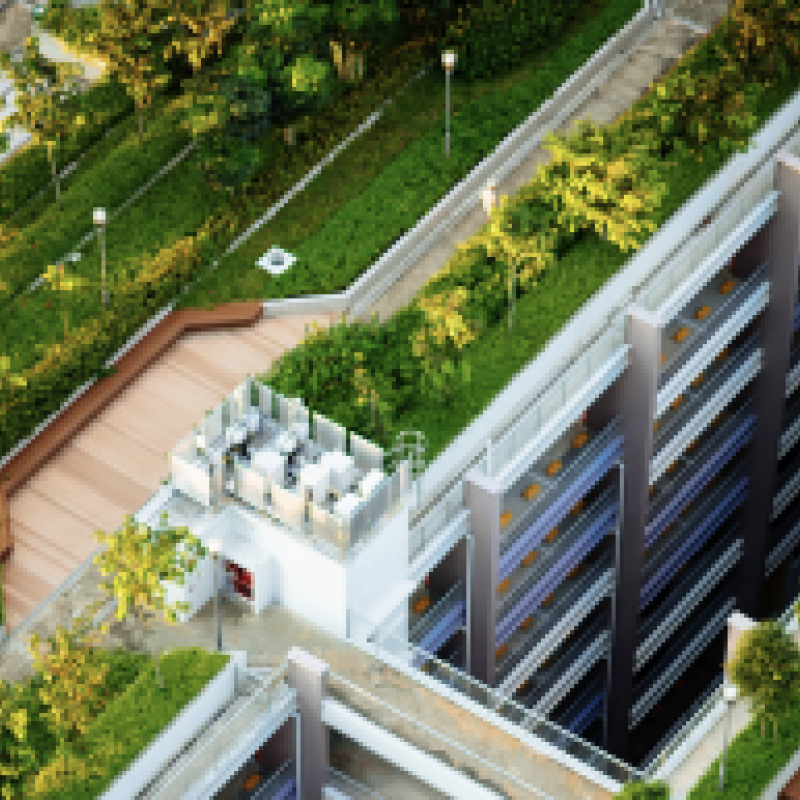
UNECE supports Sustainable Urban and Peri-Urban Forestry for public health, climate resilience and green recovery
Spending extended periods of time at home under COVID-19 restrictions highlighted the need for accessible green spaces like never before, particularly for city dwellers who sought out green spaces for fresh air, exercise and a break from the confines of their apartments. Access to green open spaces is critical to maintaining positive mental and physical health, yet a recent pan-European study showed that more than 60% of people in European cities live in areas with insufficient green space according to World Health Organization standards.
Cities now account for approximately 73% of the population in the region of the United Nations Economic Commission for Europe (UNECE) and face significant health, environmental and economic risks arising from rapid urbanization and a rapidly changing climate such as extreme heat events, air pollution, flooding and soil erosion.
Urban forests are critical city infrastructure and are essential to building environment, social and economic resilience within urban communities. A key focus area of the United Nations Decade on Ecosystem Restoration, urban trees sequester carbon and can reduce local ambient temperature by up to 8 degrees Celsius, decreasing the health impacts of extreme heat and energy needs for cooling. The contributions of urban forests, trees and associated vegetation to climate change mitigation and adaptation, disaster risk reduction, public health and well-being, biodiversity conservation and sustainable economic recovery are significant and increasingly a focus of city policymakers around the world.
“Advancing Sustainable Urban and Peri-Urban Forestry”, a policy brief just published by UNECE, emphasizes the role of sustainable urban and peri-urban forestry as an integrative and strategic nature-based solution that can help develop healthier, more sustainable and climate resilient cities.
Recognizing the collective experience of city dwellers throughout the pandemic, the UNECE policy brief highlights the urgent need to expand the forest cover in our urban areas and emphasizes that afforestation and tree planting must be supported by sustainable, long-term management to ensure that the benefits provided by urban forests are optimized over time and for all.
This is best achieved by combining the multiple opportunities for action by city and national policy makers identified in the policy brief. One rule of thumb to consider is the “3-30-300 rule,” a guideline proposed by the Nature Based Solutions Institute which emphasizes the importance of equity in urban forestry so that all residents benefit from urban trees and forests. The “3-30-300 rule” provides that individuals should be able to see at least three trees from their home, that there should be a 30% tree canopy cover in each neighbourhood and 300 metres should be the maximum distance to the nearest high-quality public green space.
UNECE supports city and national authorities to implement sustainable urban and peri-urban forestry to achieve local and national sustainable development and climate action objectives, which in turn contribute to the Sustainable Development Goals. Since 2019, the UNECE’s Trees in Cities Challenge has served as a global campaign to localize action taken to combat climate change and foster urban sustainability and resilience. To date, over 8 million trees have been planted by over 40 cities around the world. Cities continue to pledge new targets and share best practices with each other through an informal network of experts on sustainable urban forestry.
Read the Policy Brief here: https://unece.org/forests/publications/sustainable-urban-and-peri-urban-forestry-integrative-and-inclusive-nature
Learn more about the Trees in Cities Challenge here: https://treesincities.unece.org/

